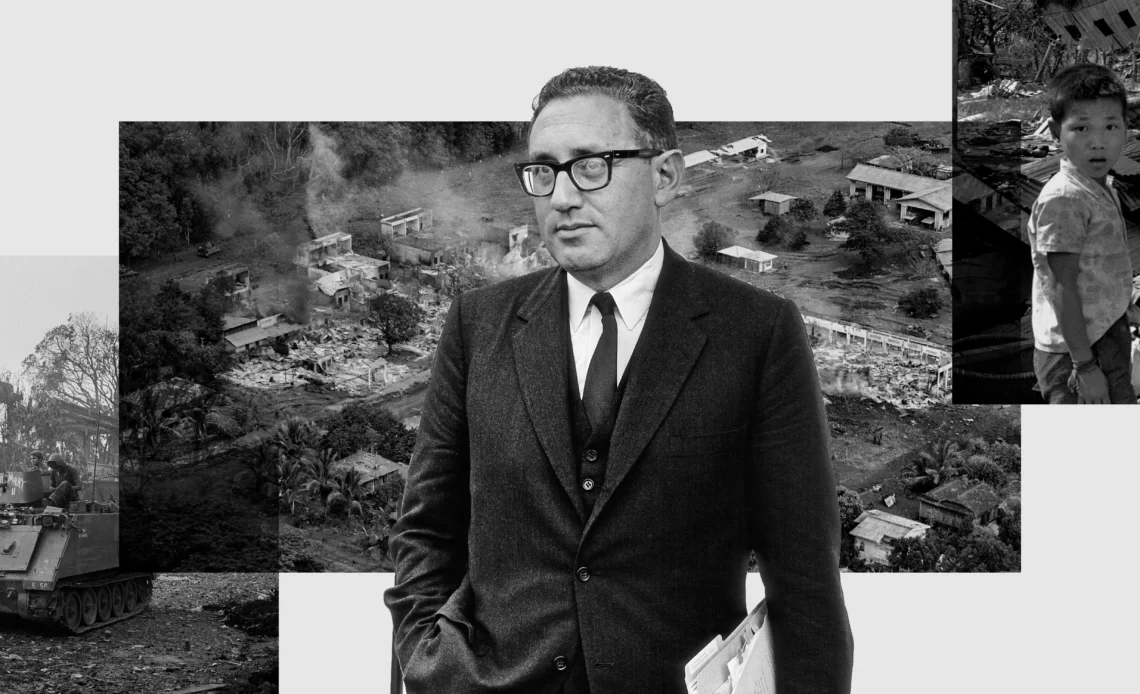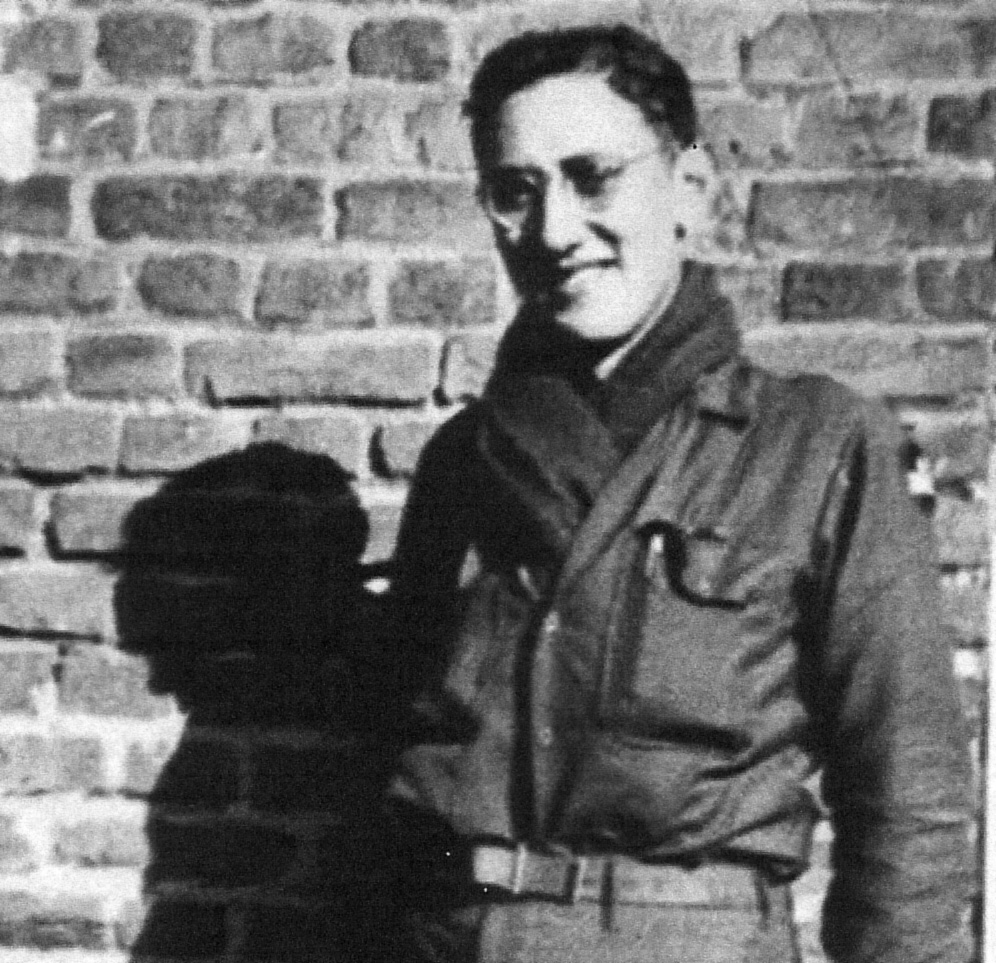
Henry Kissinger…perhaps the most famous US statesman and diplomat the country ever saw, and also the most controversial. However, very few people remain as active and influential as Kissinger has been at the age of 100, and there is some great diplomatic and tactical prowess behind that. So, today in my Blog, we will look upon the legacy of the master diplomat through Vietnam, Cambodia and Pakistan, the Cold War era and US “realpolitik”, and try to find out whether he was the “greatest statesman” or just a “war criminal”.
A Brief Life of Kissinger
Now, whatever the disagreements and dislike for Kissinger and his policies, there is no denying that he had a very ‘inspirational’ life through turbulent and struggling years. The German-born American diplomat, scholar and strategist. Being a Jew, he and his family underwent a lot of persecution by the devil named Adolf Hitler. In 1938, at the age of 15 Kissinger along with his family flee from the country, and after briefly staying in London, arrived in the US.
In the US too, he led a very struggling life. After working at a shaving brush factory during the day he used to attend school at night. He also enrolled in college, but had to halt it, as he was drafted into the US Army during the time of WW II, at the age of just 20 years. After returning he completed his studies and even started teaching. He did his graduation, master’s and PhD degrees from Harvard University, and later was inducted as a government faculty in the same institution.

Henry Kissinger during his army days during WWII (Photo: Warfare History Network)
Nixon-Kissinger: A Deadly Combo
With time, Kissinger’s policy and ideology started coming to the fore with utmost aggression. In one of his writings, he literally talked about the idea of using “tactical nuclear weapons” for winning wars. Though, his major contribution during his tenure as national security advisor and secretary of state under President Richard Nixon and Gerald Ford. His partnership with Nixon was especially “deadly” to say the least. However, initially, Kissinger was sceptic of Nixon’s credibility, once even calling him “dangerous”, but once Nixon secured a huge mandate against a candidate backed by Kissinger, he was smart enough to tweak his stand. The duo was considered very complementary and fascinating. Under Nixon, Kissinger was first appointed National Security Advisor and later the Secretary of State as well. Nixon even gave Kissinger the freedom to choose his own team to revitalise the National Security Council.

Henry Kissinger with Le Duc Tho, both were awarded Nobel Peace Prize for bringing ceasefire in Vietnam (Photo: The Guardian)
Some Defining Episodes
Kissinger played an instrumental part in the Paris Peace Accords, which led to a temporary only, but ceasefire in Vietnam. On the other hand, he was also the man who prolonged the war in Vietnam, by delaying the withdrawal of troops. This was the case when one of President Nixon’s major poll promises was a ‘complete withdrawal’ of troops from Vietnam. In addition, Kissinger also extended the conflict into Laos and Cambodia. He even bypassed Congress — which had passed the bill to block funding for further military operations in Indochina — and lobbied Congressmen for support on carpet bombings in Cambodia. According to reports, these led to the death of some 1,50,000 civilians in Cambodia.
However, in a major controversial turn of events, in 1973, Kissinger along with Vietnamese diplomat Le Duc Tho, was awarded the Nobel Peace Prize for “ending” the Vietnam War (so what if it came only after lakhs of civilian deaths). While Tho didn’t even receive the award, Kissinger too was seen as deeply ambivalent after receiving it. He donated his prize money, didn’t receive the award ceremony and later even offered to return the prize medal.
Another major policy of Kissinger was towards China. In a bid to counter the Soviets, Kissinger advocated for the US bettering its relations with Beijing. This deal was brokered by none other than Pakistan, in return for, of course, military supplies. Finally, in a rare, secret visit, Kissinger visited China in 1971 and met President Mao Zedong and his deputy Chou Enlai. This turned out to be a landmark visit as Kissinger went on to become a trusted advisor for successive Chinese leaders. He also promised the withdrawal of two-thirds of troops from the Taiwan area, leading to a cooling down of the US-China tensions to quite an extent.
Kissinger is also accused of supporting General Pinochet’s military overthrow of a democratically elected government in Chile, supporting the Argentinian military that led to the disappearance of thousands of critics, and of course supporting Pakistan which carried out a genocide of Bengalis in 1971 (I will delve into this in detail later).

A famous cartoon of the time depicting Henry Kissinger and his policies (Photo: Pinterest)
Shaping the US Geopolitics
Another massive achievement of Kissinger’s legacy is considered his “shuttle diplomacy” through which he brought Israel and Egypt to the negotiation table and normalised relations at least temporarily. However, critics are still sceptic and say that the boiling down of tensions was just temporary.
Kissinger is also credited for consolidating the job of National Security Advisor, Secretary of State and the top White House diplomat, making NSA the most important element performing foreign policy…a legacy that subsequent governments endured. “I am, by instinct, a supporter of a belief that America – with all its failings – has been a force for good in the world and is indispensable for the stability of the world. It is in that region that I have made my conscious effort” Kissinger said once.
Experts also credit Kissinger for giving direction to US foreign policy. Many believe that the biggest contribution of Kissinger to US foreign policy was his advocacy for ‘realpolitik‘. Under this, he believed that the US foreign policy must be based on a clear and systematic assessment of power dynamics and the pursuit of geopolitical stability.“My view is, we need to be always strong enough to resist any pressures. We must always be ready to defend what we define as our vital interests. We must also be clear about what our vital interests are and stay within those bounds”.
However, to date, Kissinger avoids answering questions on the Vietnam War and his role in it. He is widely criticised by historians and experts for not apologising and even for “circumventing” foreign policy from any form of democratic scrutiny. Another major criticism — quite unreported though — is regarding him reaping personal gains. In 1982, he launched Kissinger Associates, where he hired some of his powerful colleagues. The firm advised major banks, multinational corporations, and financial institutions. Questions are still raised about whether it was ethical, for a former senior official to continue to serve on advisory boards of the White House, State Department, and Pentagon while also advising companies that are likely to reap profits from those decisions.

Richard Nixon and Henry Kissinger (Photo: NPR)
Kissinger’s India connection
Kissinger’s policies and opinions on India were even more problematic to say the least, especially if you see them from an Indian point of view. As I have mentioned ‘n’ number of times (in my blogs), the story of how the US, backed Pakistan because Islamabad was a strategic partner for Washington, both from the point of view of Afghanistan as well as China. During the 1971 War, the US — under the brainchild of Kissinger — fully supported Pakistan, riding on which the Pakistan army carried out a cold-blooded genocide in Bangladesh killing thousands. (The same time when Pakistan was brokering talks between US and China). And the military support to Pakistan continued despite several American officials in Dhaka themselves warning the US against it.
This is not all, even when PM Indira Gandhi went to the US to talk on the issue of Bangladesh, Washington wasn’t too keen. Kissinger, Nixon and the US literally funded and aided Pakistan in carrying out a whole genocide. Mrs Gandhi was even insulted when she demanded wheat for a poverty-stricken India (Today they are hosting us for bloody state dinners). In another declassified conversation, Kissinger called Indians “bastards” and Nixon called Indira Gandhi a “bitch”. Now, cut to 2019, a photo went viral of the same Kissinger, with Prime Minister Narendra Modi during the latter’s US trip. It just shows how the power dynamics of geopolitics change.

Henry Kissinger during his recent visit to China (Photo: Greater Kashmir)
Kissinger in China
Henry Kissinger was recently in the news once again, when he went to China, and met some top leaders including President Xi Jinping, Foreign Minister Wang Yi (yes…the new one) and Defence Minister Li Shangfu. During the visit, while Kissinger expressed honour at the ‘warm welcome’, Xi Jinping expressed delight in welcoming an “old friend”. Now, there are several noteworthy things associated with this visit. Firstly, Kissinger holds no role in the current Biden administration and as per US officials, went there in a “personal capacity”. Secondly, this visit comes at a time, when US Secretary of Defence Lloyd Austin didn’t receive time for meeting with his counterpart, and Secretary of State Antony Blinken and Treasury Secretary Janet Yellen just received some “plain vanilla” welcomes in Beijing.
According to experts, Kissinger knows and respects history and geopolitical complications. Plus, he has seen every Chinese President from Mao Zedong to Xi Jinping, so he appreciates the deepening faultlines between a ‘superpower’ and a ‘nation trying to be powerful’. It is, a subtle message to Washington that China needs to be ‘engaged’ and not to be ‘contained’. It also “exposed” the gap that exists between US and Beijing administrations, after all there’s a reason why Washington is so unhappy with this visit. Also, this gap is not filling up anytime soon, because if there is a Trump return in 2024, US-China relations may escalate further. Wang Yi pretty much summed up the situation. “US policies towards China require Kissinger-style diplomatic wisdom and Nixon-style political courage”.
Henry Kissinger: A Problematic Legacy
“America has no permanent friends, only permanent interests,” these words by Henry Kissinger, pretty much sum up, how the US thinks. This is precisely the reason, why even a propelling friendship with the US, never excites me over the top. Anyways, coming back to Kissinger, there is no denying that since the end of the 1960s, Kissinger pretty much shaped the global order and geopolitics in the Cold War era. He was one of the most powerful persons of the era, around whom the world revolved. And, surprisingly so, he remains to be immensely influential even today, if not that much. An example of which is the recent China episode.
However, it is also true that Kissinger has a lot of blood on his hands. The deaths in Vietnam, Laos, and Cambodia (many others too) have ‘Kissinger’ written all over them. Now, not at all justifying what transpired under Kissinger’s watch, but the fact is maybe these things only made the US what it is today. There is a reason why everyone fears the US and its deadly consequences. Now, the other side is, all this came at a very heavy cost, and Kissinger will have to live with it. And, Kissinger’s legacy is something, that should be broadly studied — to understand how the world works, especially in the power chambers — and also to keep in mind where should be the checks and balances.
“To be an enemy of the US is dangerous, but to be a friend is fatal”: Henry Kissinger

